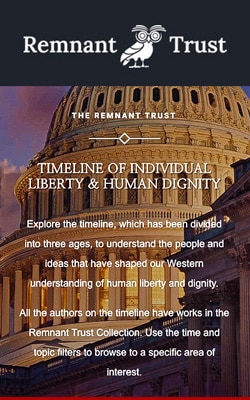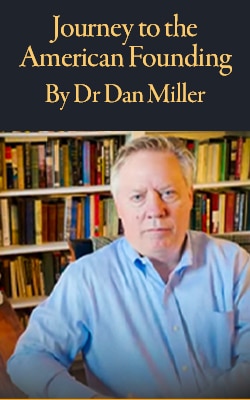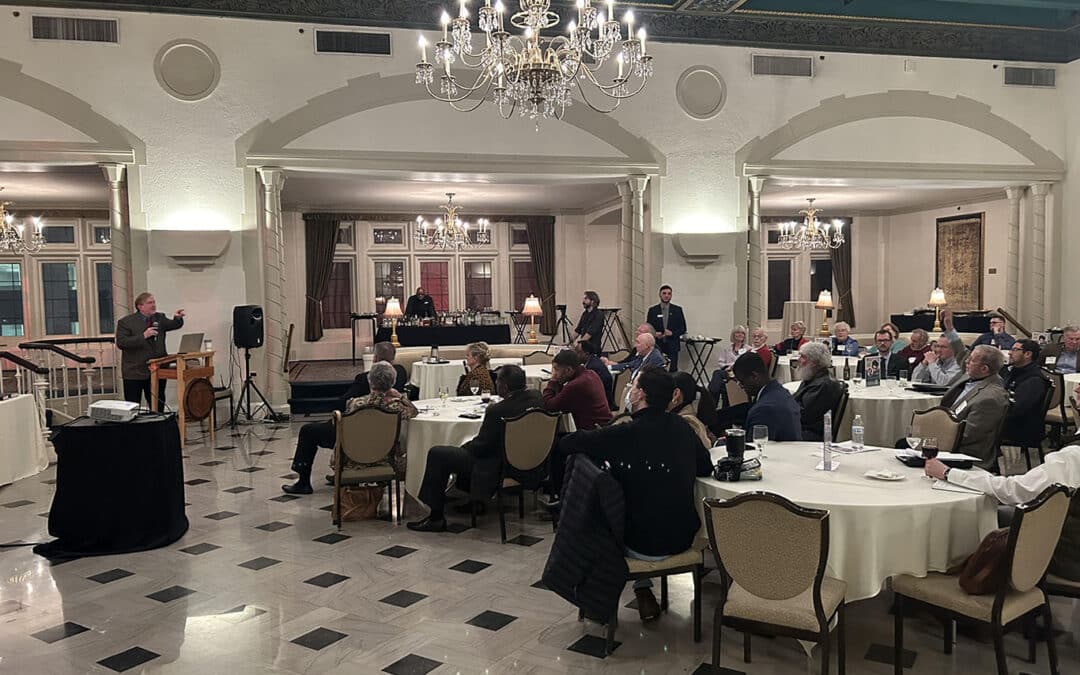Tocqueville, Social Media, and Democracy
Salon Discussion | Dr. Richard Gunderman | January 30, 2024
“Can we keep our democracy? Looking at new forms of social media through the lens of Tocqueville‘s masterpiece, “Democracy in America,” we gain a deeper understanding of the threat posed by social media and the steps we can take to bolster the future of government of the people, by the people, and for the people.” –Richard Gunderman
On January 30th at the Columbia Club, Remnant Trust held a salon discussion on “Tocqueville, Social Media, and Democracy,” led by Dr. Richard Gunderman, MD, PhD, MPH. The event included a presentation and a Socratic 90-minute discussion in the Crystal Terrace on the 3rd floor. We explored the parallels between Alexis de Tocqueville’s “Democracy in America” and the contemporary landscape of social media. Tocqueville’s warnings about the potential tyranny of the majority and the importance of civic engagement resonate in today’s digital age. Social media, often considered virtual town squares, raises concerns about echo-chambers and the dominance of influencer opinions, impacting public discourse.
Dr. Richard Gunderman, a distinguished professor at Indiana University, brings a wealth of knowledge with multiple professorships in various fields. With over 950 articles and 15 books to his name, including notable works like “We Make a Life by What We Give” and “Tesla,” Dr. Gunderman’s expertise adds depth to the discussion. Don’t miss the opportunity to gain insights into navigating the challenges social media presents to contemporary democratic ideals.
Classical Works and Tocqueville, Social Media, and Democracy:
- Democracy in America by Alexis de Tocqueville, 1841: Why are public associations essential to American democracy, and why are newspapers essential to public associations?
- The Federalist Papers by Hamilton, Madison, Jay, 1788: Why is diversity of interest and opinion vital to the security of democratic civil rights?
- First Amendment to the US Constitution by United States Congress, 1789: Why are freedoms of speech, press, assembly, and petition of the government vital to democracy?
- Lincoln-Douglas Debates by Abraham Lincoln, 1860: In a democracy, why is the molding of public sentiment even more important than the making and interpretation of the law?
- On Liberty by John Stuart Mill, 1859: Why is it so necessary in a democracy that people listen to points of view with which they disagree?
Modern Reading
- Amusing Ourselves to Death by Neil Postman, 1985: What kind of a medium are social media, and how are they shaping how we speak, think, and feel?




